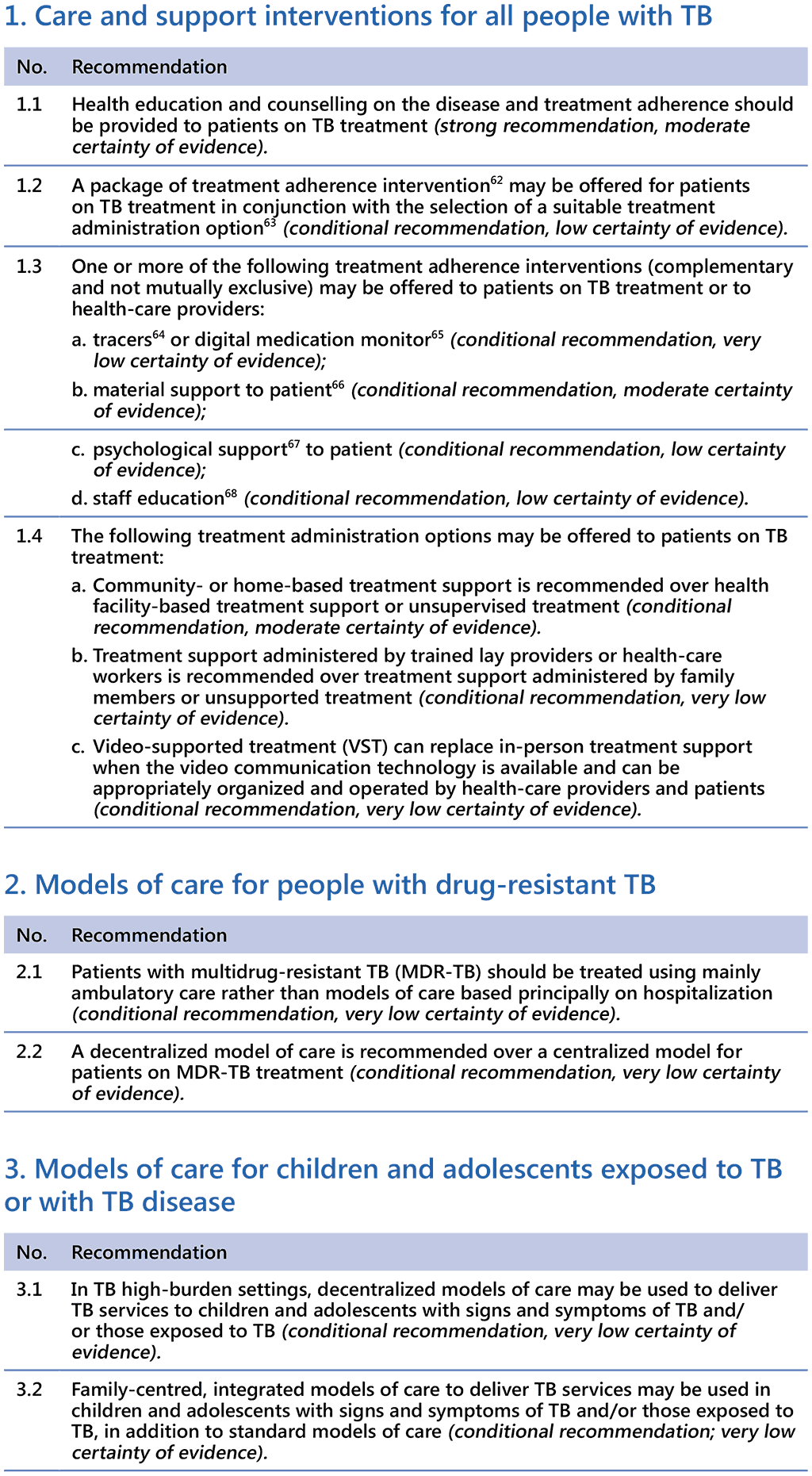Enlaces transversales de Book para 1266
The recommendations on TB care and support are as follows:

It is critical that national TB programmes and public health leaders consider these recommendations in the context of countries’ TB epidemics, the strengths and weaknesses of health systems, and the availability of financial, human and other essential resources. In adapting these guidelines, care must be exercised to protect access for the populations most in need in order to achieve the greatest impact for the greatest number of people and to ensure sustainability. It is similarly important to ensure that the adaptation of these guidelines does not stifle ongoing or planned research; the new recommendations reflect the current state of knowledge and new information will be needed for sustainability and future modifications of the existing guidelines.
62 Treatment adherence interventions include social support such as: patient education and counselling; material support (e.g. food, financial incentive and transport fees); psychological support; tracers such as home visits or digital health communications (e.g. SMS, telephone calls); medication monitor; and staff education. The interventions should be selected on the basis of the assessment of the individual patient’s needs, provider’s resources and conditions for implementation.
63 Suitable treatment administration options include various forms of treatment support, such as video-supported treatment and regular community or home-based treatment support.
64 Tracers refer to communication with the patient including via SMS, telephone (voice) calls, or home visit.
65 A digital medication monitor is a device that can measure the time between openings of the pill box. The medication monitor may have audio reminders or send an SMS to remind patient to take medications, along with recording when the pill box is opened.
66 Material support can be food or financial support such as: meals, food baskets, food supplements, food vouchers, transport subsidies, living allowance, housing incentives, or financial bonus. This support addresses indirect costs incurred by patients or their attendants in order to access health services and, possibly, tries to mitigate consequences of income loss related to the disease.
67 Psychological support can be counselling sessions or peer-group support.
68 Staff education can be adherence education, chart or visual reminder, educational tools and desktop aids for decision-making and reminder.

 Reacción
Reacción